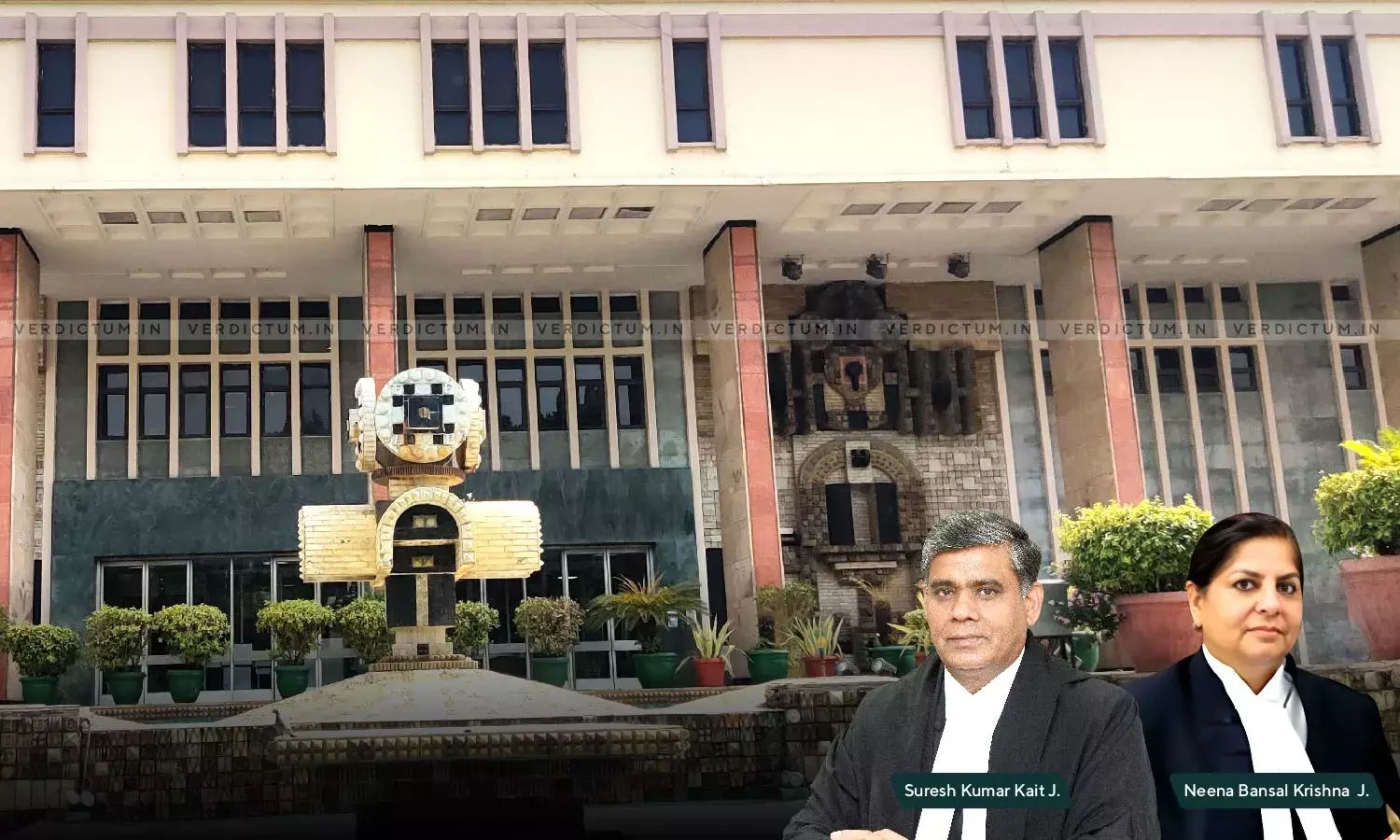Deprivation Of Conjugal Rights In Marriage Over A Period Of More Than 18 Years Amounts To Mental Cruelty: Delhi High Court

The Delhi High Court has upheld the divorce granted to a couple under Section 13(1)(ia) of the of the Hindu Marriage Act, 1955 (HMA) saying that the deprivation of conjugal rights over a period of more than 18 years amounts to mental cruelty. It relied upon the case of Samar Ghosh v. Jaya Ghosh (2007) 4 SCC 511.
The appellant (wife) being aggrieved by the grant of divorce on the ground of ‘cruelty’ under Sections 13(1)(ia) and ‘desertion’ under Section 13(1)(ib) of HMA vide the judgment and decree, filed an appeal under Section 19 of the Family Court Act, 1984.
A Division Bench comprising Justice Suresh Kumar Kait and Justice Neena Bansal Krishna held, “In the present case as well, not only did the marriage between the parties subsist for barely 35 days but failed completely on account of deprivation of conjugal rights and consummation of marriage. It may also not be overlooked that such deprivation over a period of more than 18 years itself amounts to mental cruelty as has been observed in the case of Samar Ghosh Vs. Jaya Ghosh (supra).”
The Bench also referred to the case of Rajeev Chadha v. Shama Chadha Nee Shama Kapoor (2012) 188 DLT 313 in which it was observed that the marriage without sex is an anathema and denial of sex in marriage has extremely unfavourable influence and there is nothing fatal to marriage than disappointment in sexual relationship.
Advocate Vijay Kinger appeared on behalf of the respondent i.e., husband in this case.
Facts of the Case -
The parties got married according to the Hindu customs and rites in 2004 and no child was born from their wedlock. The respondent-husband in his petition for divorce had claimed that from the very first night, he found that the appellant-wife was behaving abnormally and did not respond to his sexual overtures. She called her brother who took the appellant to her parental home and informed that she was not feeling well and would return in 2-3 days. The respondent went to the parental home of the appellant to bring her back but she stated that she was not interested to live with him.
She however, came to the matrimonial home but again returned to her parental home without informing the respondent or his family members. She was again brought back but she misbehaved and openly declared that she was not happy with the marriage and was not inclined to stay in her matrimonial home. She maintained an indifferent attitude towards the respondent and did not speak to the family members and showed complete disrespect to the parents and other family members of the respondent. The Family Court granted divorce on an application filed by the respondent on the ground of ‘cruelty’; hence, the appellant approached the High Court.
The High Court in the above regard observed, “Making allegations of dowry harassment resulted in registration of a FIR and the trial to follow can only be termed as an act of cruelty when the appellant has failed to prove even one incident of dowry demand. … However, as has been observed by the learned Principal Judge, Family Courts, the marriage is proved from the evidence to have not been consummated on account of resistance by the appellant.”
The Court said that it concurs with the Principal Judge, Family Courts that no serious or grave facts could be brought on record from where it could be concluded that this marriage was not workable within such short period.
“The learned Principal Judge, Family Courts has rightly concluded that though the desertion has not been proved but the conduct of the appellant-wife towards the respondent-husband amounted to cruelty, entitling him to the decree of divorce under Section 13(1)(ia) of the Act, 1955”, concluded the Court.
Accordingly, the High Court disposed of the appeal.
Cause Title- Seema v. Vijay Kumar (Neutral Citation: 2023:DHC:6734-DB)


